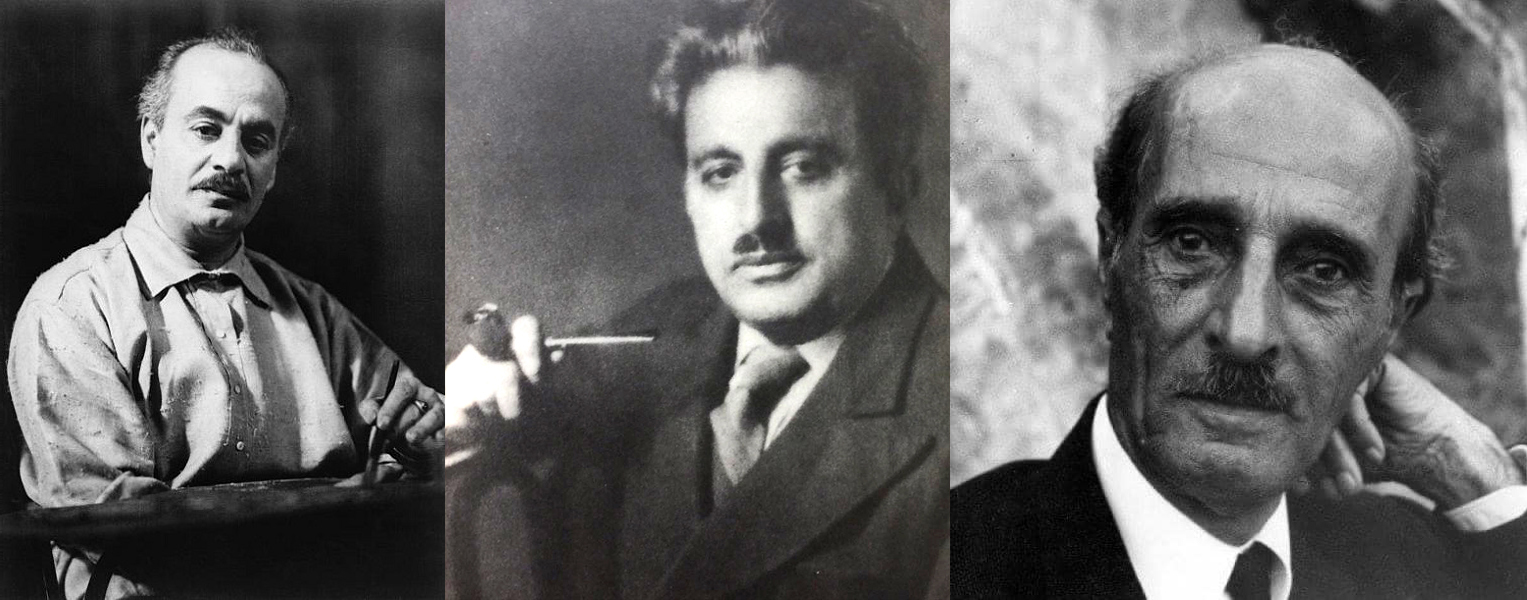2-4
From left to right: Gibran Khalil Gibran, Ameen Rihani, and Mikhail Naimy.
The pioneering Mahjar writing of first-wave Arab American literature has fascinated those in the diaspora community and their homelands for over a century. Modernist characteristics of this literature contributed to its fascination, as it developed earlier than modernism in Arabic literature.
The Mahjar modernist movement emerged in the early 20th century, rooted in romanticism and spiritual philosophy. Arab American poetry diverged from Arab poetry dramatically in form and theme, characterized by simple language, freedom from tradition in rhyme and meter, and the abandonment of stereotypes. This modernist literature was, in some ways, an antecedent to its Arab counterparts. Fascinatingly, while Arab literature did not embrace modernism until the late interwar period, members of the Arab American intellectual community readily adopted the literary movement.
The Mahjar era of Arab American literature gave rise to three icons whose influence continues today. Poet Gibran Khalil Gibran was regarded as the originator of modernity in Mahjar Arabic literature by Adonis, the dean of contemporary modernism in Arabic literature. In general, Mahjar members rejected classical and neo-classical Arabic poetry. Ameen Rihani, another literary icon, is best known for his criticisms of neo-classical Arabic poetry, challenging its “repetition, vulgarity, rudeness, realism, and immorality,” according to Moise A. Khayrallah in the Center for Lebanese Diaspora Studies. As for the third literary icon, Mikhail Naimy went as far as to call for using the Lebanese vernacular language instead of Arabic in poetry.
This article is the second installment of a four-part series of articles about Arab American literature that covers the first wave (the Mahjar period), second wave, and third wave, the contemporary period.
To read D. H. Melhem’s “Gibran’s ‘The Prophet’ Outside the Canon of American Literature,” click on the link below: https://www.aljadid.com/content/gibran%E2%80%99s-%E2%80%98-prophet%E2%80%99-outside-canon-american-literature
To read Steven Salaita’s “Vision: Arab-American Literary Criticism,” click on the link below:
To read Therí Alyce Pickens’ “Presently Reading the Past: A Look at Early Arab-American Literature,” click on the link below:
Excerpted from Elie Chalala's "Arab American Literature Pioneers Incorporating Modernism and Reason: How Later Generations Reduced a Dynamic Legacy to Mere Genealogy," which appeared in Al Jadid Magazine, Vol. 27, No. 84, 2023 and Inside Al Jadid Reports, No. 55, 2023.
Copyright © 2023 AL JADID MAGAZINE

